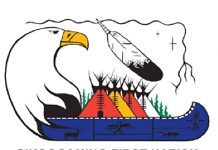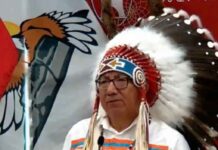

Crazy Horse – Resistance Leader Remembered
“The made us many promises, more than I can remember – They never kept but one; they promised to take our land and they took it!” Lakota Chief Red Cloud – 1891.
The fact that the phrase “The pen is mightier than the sword” has been attributed to so many authors over the centuries speaks to its long lasting truth. Words have power. They can inflict, incite, empower, enslave or inspire. And has been witnessed by so many unfulfilled treaties, words can be broken. Words have worth. They have value. They have currency. We sometimes debase the value of that currency when we overuse the word (aren’t you tired of hearing anyone say “absolutely”), or when we grossly inflate the meaning of a word so that it can be used to describe almost any action or person.
Take the word ‘hero’ for example. The dictionary defines hero as one who is admired for their courage, outstanding achievements, or noble qualities. Yet today, we can “over-describe” many actions as being heroic as in “he climbed up to the second branch and saved my cat”. And of course, every returning soldier from our wars of misadventure in Iraq or Afghanistan is a hero, each and every one. I was reminded of this over usage when my wife and I in search of sun and an escape from the cold grip of winter decided to head south via two historic sites that we had not visited for years – The Little Big Horn Battlefield where Custer met his timely demise and the Crazy Horse Memorial in the southern and sacred Black Hills of the Lakota, a destination often visited by the First Nations peoples of northwestern Ontario.
Crazy Horse Memorial Under Construction for 65 Years
The winds and snows of winter prevented us from going any further west than the Dakotas so we spent that extra time visiting the Crazy Horse Memorial (www. http://crazyhorsememorial.org/) which we had last seen 33 years ago. The memorial has been under active construction for 65 years and it will not be finished in my lifetime. Etched and carved out of the granite of the Black Hills, the sculpture when completed will be one of the largest naturally hewn monuments in the world – all devoted to immortalizing the courage, outstanding achievements, and noble qualities of Crazy Horse – a true Native American hero. The memorial, meant to characterize the spirit of this young war chief shows Crazy Horse astride his stallion, hair blowing in the wind, with his arm and hand extended pointing to “the lands where my people lie buried,” his beloved Black Hills where he was born in the early 1840’s. His warrior path began soon after the government unilaterally tore up the Treaty of Fort Laramie (1868) in which the US President had, in effect, promised “as long as the rivers run and grass grows and trees bear leaves, the Paha Sapa – the Black Hills of Dakota will forever be the sacred land of the Sioux Indians.”
Apparently the word “gold” had more worth than just the word itself!
Until his commanding role in the annihilation of the US 7th Calvary in the Battle of the Little Big Horn in 1876, Crazy Horse had witnessed and experienced one humiliation after another, from the murder of his own chief, Conquering Bear by US soldiers through to the persistent failure of the government to fulfill treaty guarantees and provide the promised bare necessities of life for his people. He defended his people in the only way he knew how. Under a flag of truce, he was bayoneted in the back and killed by a US soldier in 1877. Perhaps author Chris Hedges said it best, “there are few resistance figures in American history as noble as Crazy Horse. . . his ferocity of spirit remains a guiding light for all who seek lives of defiance.”
Words sometimes come cheap, but in this instance the word “hero” is, as they say, priceless.
Peter Globensky






